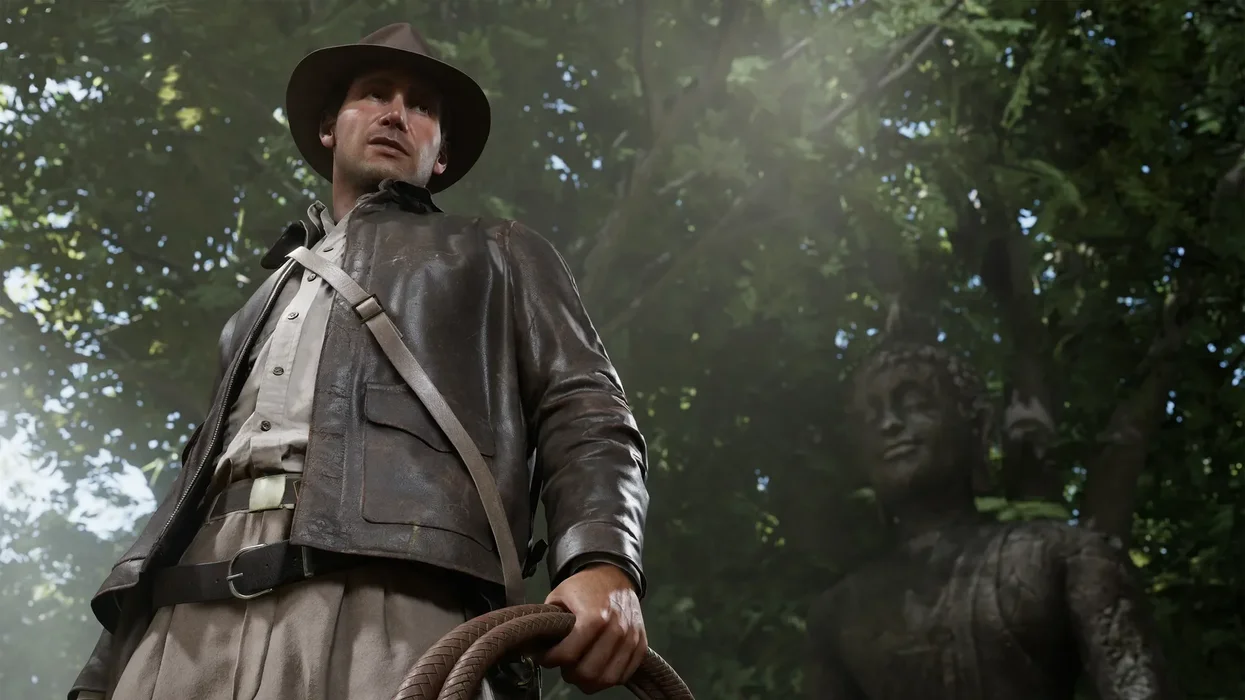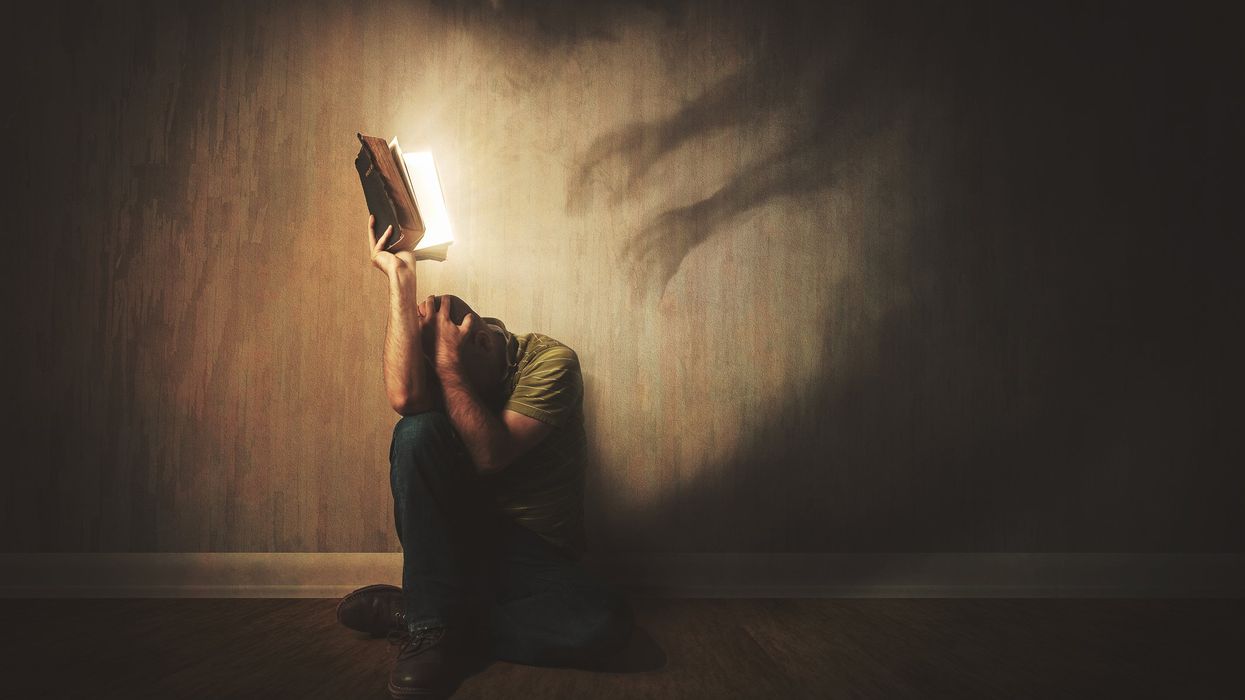An updated edition of a high school history textbook promotes an anti-Trump narrative and is laced with innuendos that his supporters and white people in general are racists.
Alex On-Air, a talk show host with WNOW-FM radio in Indianapolis, Indiana, posted several examples from the textbook on Twitter, and the story was also reported by The American Mirror.
What does this reflect?
“In case you didn't think there was an effort going on in public schools to indoctrinate kids with an anti-conservative agenda, a friend of mine took pictures and highlighted parts of this AP US History book," the WNOW radio host wrote on Twitter.
The textbook, “By The People," by James W. Fraser is geared for Advanced Placement high school students in grades 9-12, according to its publisher's website. The book, published by textbook giant Pearson, is an updated edition and carries a 2019 copyright mark.
A section of the book reads:
Trump's supporters saw the vote as a victory for the people who, like themselves, had been forgotten in a fast-changing America–a mostly older, often rural or suburban, and overwhelmingly white group. Clinton's supporters feared that the election had been determined by people who were afraid of a rapidly developing ethnic diversity of the country, discomfort with their candidate's gender, and nostalgia for an earlier time in the nation's history. They also worried about the mental instability of the president-elect and the anger that he and his supporters brought to the nation.
What else does it say?
Published photos of the book show that it also states:
Whatever people's opinions, on January 20, 2017, Donald J. Trump was inaugurated as the forty-fifth president of the United States. The inner circle of his advisors seemed to represent a mix of some deeply ideological conservatives, traditional politicians, and his family. His cabinet nominees were mostly highly successful business leaders who had made their fortunes and were now joining the team of another unusually successful businessman. They were largely white males, more so than any presidential cabinet since Ronald Reagan.
"By The People" also brings up former President Barack Obama's tenure, stating: “Those who had long thought of the nation as a white and Christian country sometimes found it difficult to adjust."
Further, it promotes an "all-white-people-are-racists" narrative in a section about the activist group Black Lives Matter. The group entered the national stage through demonstrations it held after Michael Brown was killed by Ferguson, Missouri police in 2014.
“The nearly all-white police force was seen as an occupying army in the mostly African American town," the book states, adding, “...police increased the tensions, defacing memorials set up for Brown and using rubber bullets on demonstrators."
The history textbook is just one example of how the liberal agenda is promoted in schools. In another recent example, members of the LGBT community are pushing for legislation in Illinios that would require public schools to teach LGBT history.
Are there other examples of how this is promoted in schools?
There are other examples, as well.
In March, a parent posted on Facebook questions her daughter was asked for a fill-in-the-blank vocabulary quiz.
The a questions included:
- “It was difficult for me to [blank] my feeling when I learned that Donald J. Trump had been voted in as our 45th President."
- “After reading about President Trump's immigration ban, I did not realize how [blank] the law can be."
Another example is parents of students at New Trier High School, which is located in an upscale, mostly-white suburb of Chicago. Parents there were upset about teachings at a seminar on "understanding today's struggle for racial civil rights." Some called it a way to force 'social justice' issues the school's 4,000 students. School and district officials defended the seminar as a way to teach current events.
Has the author responded?
In a statement to Lead Stories, Fraser defended his approach to President Trump's victory and to Trump supporters:
First and most important, the last thing I want to is further divide the people of this country who are already far too divided. We need to find ways to talk to each other across deep and real divides, and listen to each other even if we will never agree, not retreat into separate corners.
As a writer and teacher I see it as my job to put the information about history, including elections in front of students as honestly and clearly as I can. I tried to do the same for Trump v. Clinton as I did for Adams vs. Jefferson or any other election. I never want to indoctrinate but to encourage students to listen to various arguments and multiple perspectives. It is the role of a textbook, or a good teacher to do that. I do want to encourage them to think for themselves, ask hard questions, look at the facts, and make up their own minds. Such informed thinking is critical to a vibrant democracy.
Keeping facts from students rightly makes them distrust all textbooks. Laying out the facts as clearly as I know how and doing so in comparison to other information or facts is the best way to encourage the kind of thoughtful engagement with history that every historian should work for.
I have reviewed the part of the text most in question and I believe that my statements about the electorate are indeed factually correct. I wrote, "Trump's supporters saw the vote as a victory for the people who, like themselves, had been forgotten in a fast-changing America--a mostly older, often rural or suburban, and overwhelmingly white group." Demographic data and polling all support that conclusion. I doubt the president would disagree. I did not call anyone a racist and I would not--in a book or a class or a conversation.
History can never be merely a collection of facts. Such a history would be boring in the extreme. Historians always make judgments but it is our ethical responsibility to make the judgments based on evidence as best we can understand it and especially in a textbook to present differing judgments.
The best history provides multiple perspectives, asks students to think for themselves, and take evidence seriously. That is exactly what I have tried to do in this book.
This piece has been updated to include a statement from James Fraser. Additionally, the original headline stated that the textbook "teaches" that Trump is "mentally ill." We have altered the headline to reflect that the textbook referred to Trump as "mentally unstable" rather than "mentally ill" and to further clarify that some of the textbook's bias against Trump and his supporters is implied rather than explicit.




